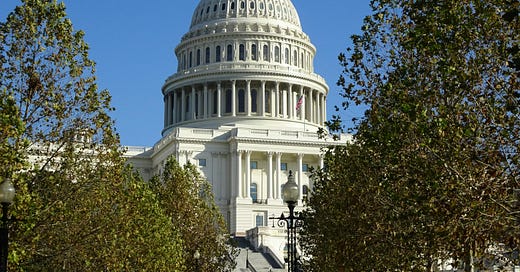Tax Fight Isn’t Just About Letting Cuts for Rich Expire—We Need More to Achieve Fairness
We want to use this opportunity to make real progressive improvements in our tax system.
By William Rice
The title of a Congressional committee hearing this week captures a crucial aspect of the intensifying debate over the fate of the expiring Trump tax cuts. The name of the Senate Finance Committee hearing—“The 2025 Tax Policy Debate and Tax Avoidance Strategies”—properly suggests that the legislative battle won’t just be whether to end old tax cuts for the wealthy, but also whether to impose new taxes on them. Both actions are essential if we are going to fully exploit this rare opportunity to remake the tax code in a fairer form.
As more and more people know because it’s increasingly in the news, most of the 2017 Trump-GOP tax law will expire at the end of next year. GOP leaders want to make all the expiring provisions permanent at a cost of nearly $5 trillion. The Biden-Harris administration has vowed to let those parts expire that exclusively benefit households with incomes over $400,000.
The Trump law has so far been, in the phrase used by ATF’s executive director recently on C-SPAN, “an expensive failure.” None of the benefits promised by its proponents have materialized.
Instead of “paying for themselves” through greater economic activity, the Trump tax cuts are estimated to add $2 trillion to public debt over their first 10 years. Instead of being “a tax cut for the middle class,” the Trump law next year will reduce taxes on the highest-income 1% by an average of over $60,000 while giving the average middle-income family less than $3 a day. By the time the pandemic scrambled the economy in 2020, economic growth had not accelerated nor had business investment taken off—it had actually fallen.
So there’s a strong argument to let those aspects of the expiring provisions that will not raise taxes on working families or the middle class fade away on schedule. But doing so is not enough if we want to use this opportunity to make real progressive improvements in our tax system.
The second part of the hearing title, “Tax Avoidance Strategies”, refers to the ability of the super-rich and big corporations to dodge paying their fair share. That tax avoidance comes in many varieties, but they all have the effect of widening economic inequality and depriving us of vital public revenue we need to lower costs and expand opportunities for working people.
Billionaires can pay lower tax rates than electrical line workers, emergency-room nurses and teachers—and sometimes nothing at all—because our current code completely fails to tax their biggest source of income: the increase in value of investments they don’t sell. Those rising asset values confer real economic benefits—including the ability to get low-cost loans for living expenses—yet there’s no system in place to tax them.
Hyper-wealthy clans can accelerate the growth of family fortunes as they pass down the generations—creating economic dynasties of ever-increasing power—because our estate tax and related transfer taxes have been weakened practically to the point of irrelevance. Through special trusts that fudge the ownership of investments and the income from them and other accounting maneuvers like artificially lowering the value of private businesses, rich families dodge billions and billions of dollars of taxes on inheritances and gifts. They thereby remove themselves even further from the concerns of everyday Americans and through their unpaid taxes make life tougher for everyone not lucky enough to be born into generational wealth.
Corporations can dodge U.S. taxes by shifting profits and production to tax havens overseas. The Republican tax law actually encourages such offshoring. They can dodge even more right here at home by exploiting overly generous deductions for depreciation, research and interest. (In order to keep its cost within Congressional rules while still making a huge cut in the corporate tax rate, the Republican law recently tightened rules in all three areas. But corporate lobbyists are fighting to loosen them again as part of the larger battle over the law’s expiring provisions.)
There are solutions to all these faults in the tax code that transcend how we deal with the expiring parts of the Trump-GOP tax law. President Biden and the top tax writer in the Senate—Ron Wyden (D-OR), who chaired the recent committee hearing—have each proposed special taxes on the nation’s handful of wealthiest households that would finally address the problems of untaxed capital gains. We can shut down abusive trusts and other accounting tricks that shield the transfer of dynastic wealth from taxation. And we can start demanding hugely profitable corporations start to pay a fairer share to the country that helps make them successful, including by taxing overseas profits at the same rate as domestic ones instead of at a discount like now.
This week’s Senate committee hearing should be heard as a starting horn for the race to improve the tax code by New Year’s Eve 2025. But we should remember that race has two legs: letting the existing tax cuts for the rich expire, and crafting new approaches to tax them better.



